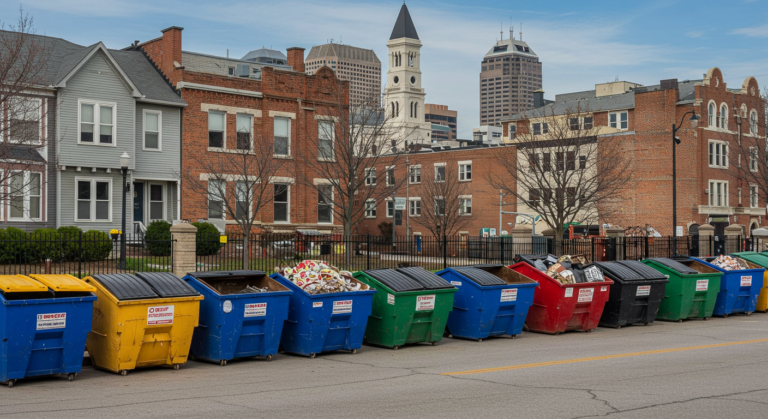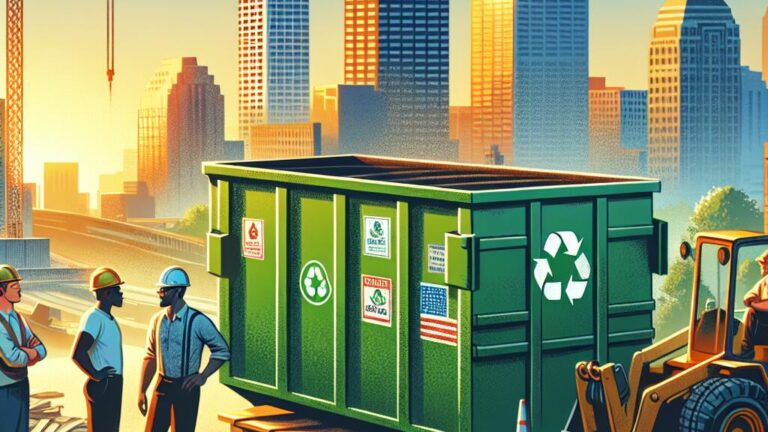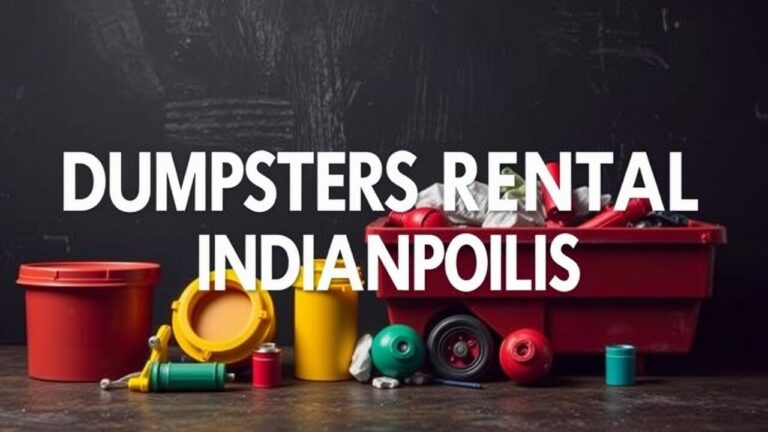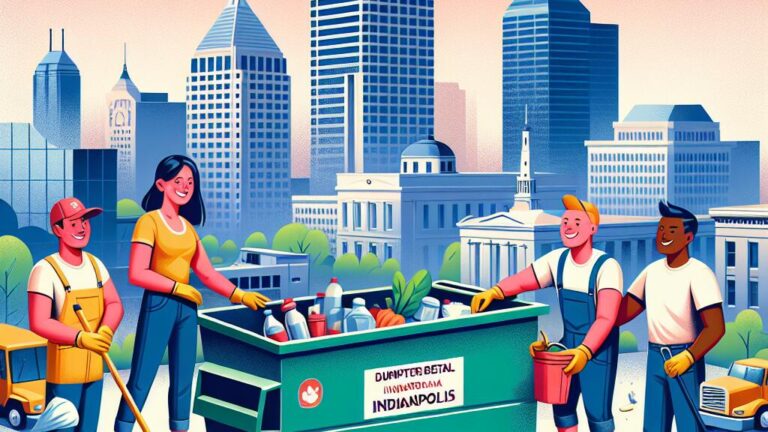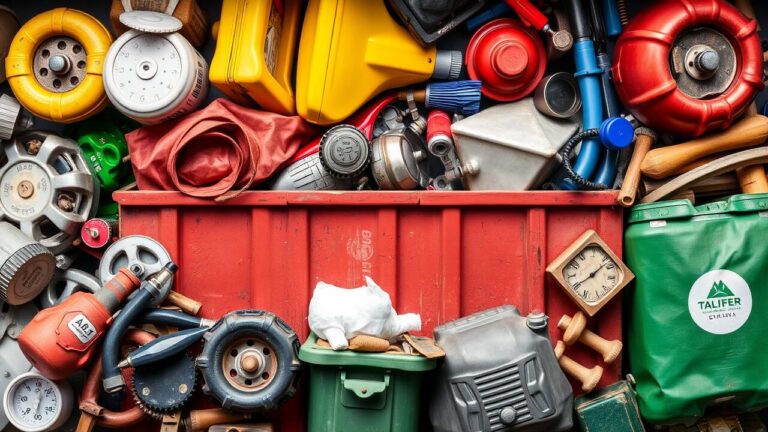The History of Commercial Dumpsters in Indianapolis
The Role of Local Businesses in Waste Management
Local businesses play a crucial part in the waste management ecosystem of Indianapolis. Their operations generate various forms of waste, from packaging materials to food scraps. Efficiently managing this waste is essential for maintaining clean environments and meeting local regulations. Many companies have adopted practices that reduce waste generation, such as optimizing packaging and implementing composting programs. This commitment not only helps the community but also enhances their reputation as responsible business leaders.
In addition to reducing waste, local businesses often collaborate with waste management services to improve disposal efficiency. This partnership facilitates the development of tailored solutions suited to specific business needs. Such arrangements can include scheduled pickups, recycling programs, and education on proper waste segregation. By actively engaging with waste services, businesses can track their waste output and identify areas for improvement, ultimately contributing to a more sustainable urban landscape.
Collaboration between Companies and Waste Services
The relationship between local businesses and waste service providers has evolved dramatically over the years. These companies understand the necessity of efficient waste management to maintain clean environments and enhance their corporate responsibility. Many businesses establish partnerships with waste services to streamline their disposal processes, ensuring proper sorting and recycling practices. This collaboration often leads to customized waste management solutions tailored to specific industry needs.
In Indianapolis, such partnerships frequently include the implementation of innovative waste tracking systems. These systems allow companies to monitor their waste generation and disposal in real-time, facilitating better decision-making around sustainability. As awareness of environmental issues grows, businesses increasingly seek out waste service providers who prioritize eco-friendly practices, including recycling and composting programs. Such efforts not only benefit the environment but also bolster a company’s reputation in the community.
Environmental Impact of Commercial Dumpsters
The presence of commercial dumpsters in urban areas significantly influences local environments. Their primary purpose is to streamline waste collection, reducing the likelihood of litter and illegal dumping. Properly managed dumpsters help to maintain cleanliness in neighborhoods, minimizing the risk of attracting pests and contributing to public health concerns. However, if not maintained or serviced correctly, these containers can become sources of pollution, leaking harmful substances into the surrounding soil and waterways.
The spatial arrangement of dumpsters also plays a critical role in waste management efficiency. Strategically placed dumpsters facilitate better access for businesses and waste collection services, promoting responsible disposal practices. Nonetheless, the visual impact of these dumpsters can sometimes detract from the aesthetics of a community. Efforts to mitigate their environmental footprint include initiatives to increase recycling access and educate businesses about waste segregation, ultimately aiming to lessen the negative consequences associated with commercial waste disposal.
Sustainability Efforts in Urban Waste Disposal
In recent years, cities have increasingly recognized the importance of sustainable waste management practices. This shift is evident in the adoption of commercial dumpsters designed with eco-friendly materials and innovative technologies that promote recycling and reduce landfill waste. Many waste management companies in Indianapolis have begun to implement more efficient collection routes, which minimizes fuel consumption and lowers greenhouse gas emissions. Community education programs have also emerged, encouraging businesses to adopt practices that align with sustainability goals, from proper sorting of recyclables to composting organic waste.
Partnerships between municipalities and local businesses are crucial in driving these sustainability efforts forward. Programs that incentivize businesses to reduce waste generation promote not only environmental stewardship but also economic benefits. These collaborations often lead to the implementation of more comprehensive recycling initiatives and encourage the use of reusable materials in place of single-use options. As awareness of environmental issues grows, the integration of sustainable practices in urban waste disposal has become a necessity rather than a choice for many companies looking to improve their impact on the planet.
Changing Consumer Attitudes towards Waste
In recent years, there has been a noticeable shift in how consumers view waste and its management. People are increasingly becoming conscious of the amount of waste they generate and are more knowledgeable about the environmental consequences. This growing awareness is driven by a culture that emphasizes sustainability, where individuals prioritize reducing their footprint and seek products and services that reflect eco-friendly practices. As a result, businesses are responding by adopting more responsible waste disposal methods and offering recycling opportunities.
The trend toward greater environmental responsibility has influenced consumer expectations of local businesses. Many customers now actively seek out companies that demonstrate a commitment to sustainability. This desire for accountability has encouraged businesses to implement more rigorous waste management strategies. Companies are starting to offer programs that encourage recycling and proper waste separation, aligning with consumer preferences for greener practices. Adapting to these changing attitudes not only meets customer demands but also enhances the overall reputation of businesses in the community.
The Shift towards Recycling and Reuse
In recent years, communities have increasingly recognized the value of recycling and reuse as essential components of waste management. Businesses are now more proactive in exploring methods to minimize waste. Many establishments have adopted practices focused on separating recyclable materials from general waste. This transformation stems from a growing understanding of the environmental and economic benefits associated with sustainable waste disposal.
Consumer attitudes play a significant role in this shift. More individuals prioritize sustainability in their purchasing decisions. This change has prompted companies to implement robust recycling programs and enhance the visibility of their efforts. By doing so, they not only meet customer expectations but also contribute to a cleaner environment. The emphasis on recycling and reuse reflects a broader societal trend towards responsibility and conservation in everyday practices.
Future Trends in Waste Management
Emerging technologies are poised to transform the waste management landscape significantly. Innovations in data analytics enable companies to optimize collection routes and schedules, leading to reduced fuel consumption and lower operational costs. Smart dumpsters equipped with sensors can provide real-time monitoring of waste levels, allowing for more efficient pickups. This technological integration promises to streamline operations while enhancing service quality for local businesses.
Increasingly, regulatory pressures are driving the adoption of more sustainable practices within the waste management sector. Legislation focused on reducing landfill waste is encouraging companies to develop robust recycling programs and promote composting initiatives. The demand for transparency in waste disposal processes is rising, as consumers become more informed and concerned about environmental impacts. This shift indicates a growing need for services that align with sustainable principles, pushing waste management providers to innovate further.
Predictions for Commercial Dumpster Services
As urban areas continue to grow, the demand for efficient waste management solutions will likely increase. Commercial dumpster services may evolve by offering specialized containers tailored to the needs of various industries. This adaptability could be crucial, particularly as businesses strive to improve their sustainability practices. Enhanced technology and real-time tracking options may also emerge, allowing companies to monitor waste levels and optimize collection schedules effectively.
Consumer expectations surrounding waste disposal are shifting towards more environmentally friendly practices. As businesses increasingly recognize the importance of corporate social responsibility, partnerships with recycling and waste diversion programs may become more common. This trend could lead to a greater emphasis on educational initiatives that promote recycling and reduction of single-use materials. The industry’s future may reflect a more holistic approach to waste management, prioritizing both efficiency and sustainability.
FAQS
What are commercial dumpsters used for in Indianapolis?
Commercial dumpsters are primarily used by businesses to collect and dispose of waste generated during their operations, including trash, recyclables, and construction debris.
How have local businesses in Indianapolis contributed to waste management?
Local businesses have played a significant role in waste management by collaborating with waste service providers, adopting sustainable practices, and promoting recycling initiatives within the community.
What is the environmental impact of commercial dumpsters?
The environmental impact of commercial dumpsters can be significant, as they help streamline waste disposal and reduce litter in urban areas. However, improper use can lead to pollution and increased landfill waste if not managed properly.
How are companies in Indianapolis promoting sustainability in waste disposal?
Companies in Indianapolis are promoting sustainability by implementing recycling programs, using eco-friendly materials, and partnering with waste service providers that prioritize environmentally responsible practices.
What trends are shaping the future of commercial dumpster services in Indianapolis?
Future trends may include increased emphasis on recycling and composting, the adoption of smart waste management technologies, and greater collaboration between businesses and waste management services to reduce environmental impact.


